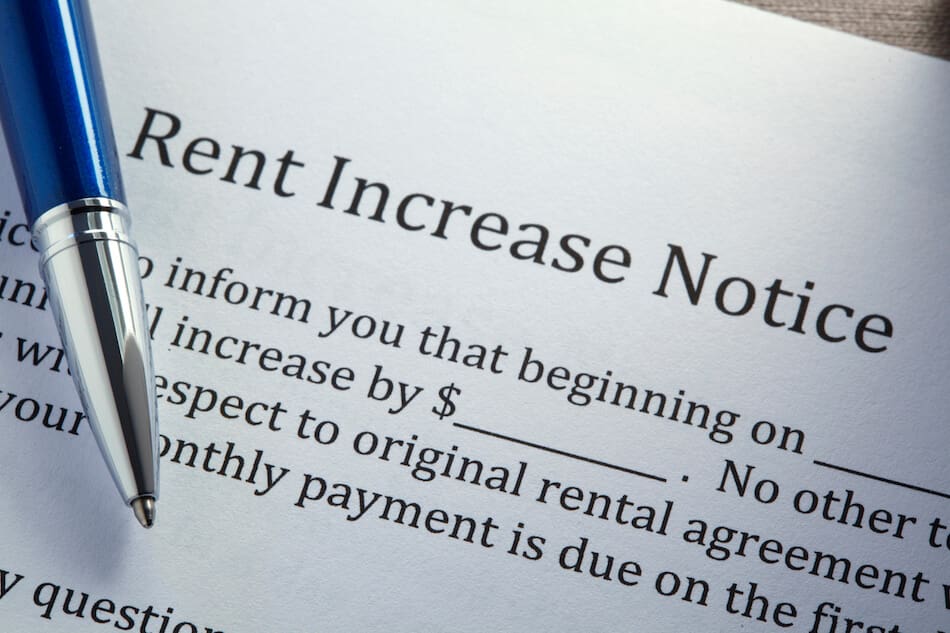In today’s shifting rental market, many tenants opt for month-to-month lease agreements for the flexibility they provide. However, with that flexibility comes the potential for sudden rent increases. If you’re renting without a long-term contract, it’s essential to understand when and how a landlord can legally raise your rent.
This article explores everything renters need to know about month-to-month rent increases. From legal regulations and notice requirements to negotiation strategies and tenant rights, we break it all down in clear terms. Whether you live in single-family homes, duplexes, or other residential properties, being informed puts you in control.
Quick Summary
This article covers the essential aspects of rent increases in month-to-month lease agreements. Here’s a breakdown of the most important points:
-
Landlords can raise rent, but they must comply with local regulations and provide proper notice
-
Month-to-month agreements offer flexibility but less protection from rent hikes
-
Tenants have legal rights, including the ability to dispute increases and negotiate new terms
-
Common reasons for rent increases include market shifts, property improvements, and cost inflation
-
Organized documentation like payment stubs, ledgers, invoices, and declarations can be crucial
-
Knowing your rental agreement, the law in your jurisdiction, and being ready for an audit strengthens your legal standing
Whether you stay or decide to move, being informed allows you to make the best decision for your living situation.
Overview of Rent Increase Policies
Month-to-month leases are typically less restrictive than fixed-term leases. This gives landlords the ability to raise rent more frequently. However, that does not mean they can do so without limits. Rent increases must follow specific rules that vary by state and city.
A common assumption is that landlords can raise rent whenever they want. In reality, rental agreements, local ordinances, and state law often impose guidelines to protect tenants. These protections include percentage limits, notice requirements, and occupancy regulations.
Legal Regulations on Rent Increases
Whether or not a landlord can raise the rent depends heavily on your location. In areas with rent control or rent stabilization, local laws may limit how much the rent can increase annually. For example, some jurisdictions set a maximum percentage that rent can be raised.
These regulations ensure tenants are not priced out unfairly or subjected to drastic adjustments. If a landlord raises rent in violation of these laws, the tenant can file a formal complaint. Understanding your jurisdiction’s legal landscape is crucial in these situations.
Month-to-Month Lease Agreements
A month-to-month lease continues indefinitely until either the landlord or the tenant gives notice to end it. These types of leases are popular among tenants who want flexibility, especially in fast-changing housing markets.
However, this flexibility comes with fewer long-term protections. Rent can be increased with appropriate notice, and tenants do not have to give consent for these increases if all legal conditions are met. This setup benefits landlords who want to adjust to the rental market but can feel unstable for tenants.
Notice Requirements for Rent Increases
In most places, landlords are required to give tenants written rent increase notice before increasing rent. This typically ranges from 30 to 60 days, depending on the amount of the increase and local laws. The notice must clearly state the new rent, the effective date, and be delivered in writing.
Without proper notice, a rent increase is not valid. Tenants should always retain copies of rental agreements and all written communications related to rent hikes. Having this documentation is key in case of a future dispute.
Factors Influencing Rent Raises
There are many reasons a landlord may decide to raise rent, including:
-
Higher property taxes or insurance premiums
-
Increases in housing costs and general inflation
-
Upgrades or repairs to the property
-
Increased demand in the rental market
-
Changes in occupancy laws or rental regulations
Landlords are allowed to increase rent for valid reasons, but tenants should stay alert for signs of unjustified hikes, especially if the increase follows a disagreement or complaint.
Tenant Rights in Rent Increase Situations
Tenants have the right to live in a stable and fair housing environment. While landlords have the obligation to maintain the property and adjust rent in response to market shifts, they must also follow due process.
If a rent increase feels excessive or retaliatory, tenants can file a formal dispute with a local housing authority. In such cases, having a clear ledger of past payments and any correspondence with the landlord can strengthen your case.
Negotiating Rent Increases with Landlords
Tenants are not powerless when facing rent increases. In many cases, you can negotiate. If you’re a reliable tenant with on-time payments and a good relationship with your landlord, you might be able to agree on a smaller increase or a fixed-term renewal.
Supporting your negotiation with evidence – such as comparable rents in your area or a clean property inspection – can lead to better outcomes. It’s always advisable to conduct negotiations in writing for verification purposes.
Common Reasons Landlords Raise Rent
Here are some common justifications landlords cite when increasing rent:
-
Market rates have risen significantly
-
Major renovations or improvements were made
-
General property maintenance has become more expensive
-
Taxes or fees have increased due to local ordinance changes
-
The landlord seeks to improve tenant turnover or balance occupancy
While these reasons are understandable, tenants have every right to request documentation or justification, especially if the increase appears steep.
Options for Tenants Facing Rent Increases
When you receive notice of a rent hike, you’re not out of options. Here’s what you can do:
-
Negotiate with your landlord for a smaller increase or longer lease term
-
Dispute the increase through legal channels if you believe it violates local laws
-
Request permission to continue under your current rent for a limited time
-
Plan a move and begin searching for more affordable residential units
-
Review your lease to ensure the rent hike is even allowed under your agreement
Maintaining organized bookkeeping records such as invoices, payment stubs, and rental contracts helps strengthen your position in any negotiation or legal dispute.
Preparing for a Potential Move
If the rent increase is too high or not aligned with your budget, it might be time to move. Begin preparing by:
-
Comparing rental properties in your area
-
Collecting moving references and rental history
-
Requesting your security deposit return with documentation
-
Ensuring you give notice according to your lease to avoid complications
Be proactive. Planning ahead avoids last-minute crises and makes the transition smoother. Also, document the property’s condition before leaving to prevent issues with the return of your security deposit.












